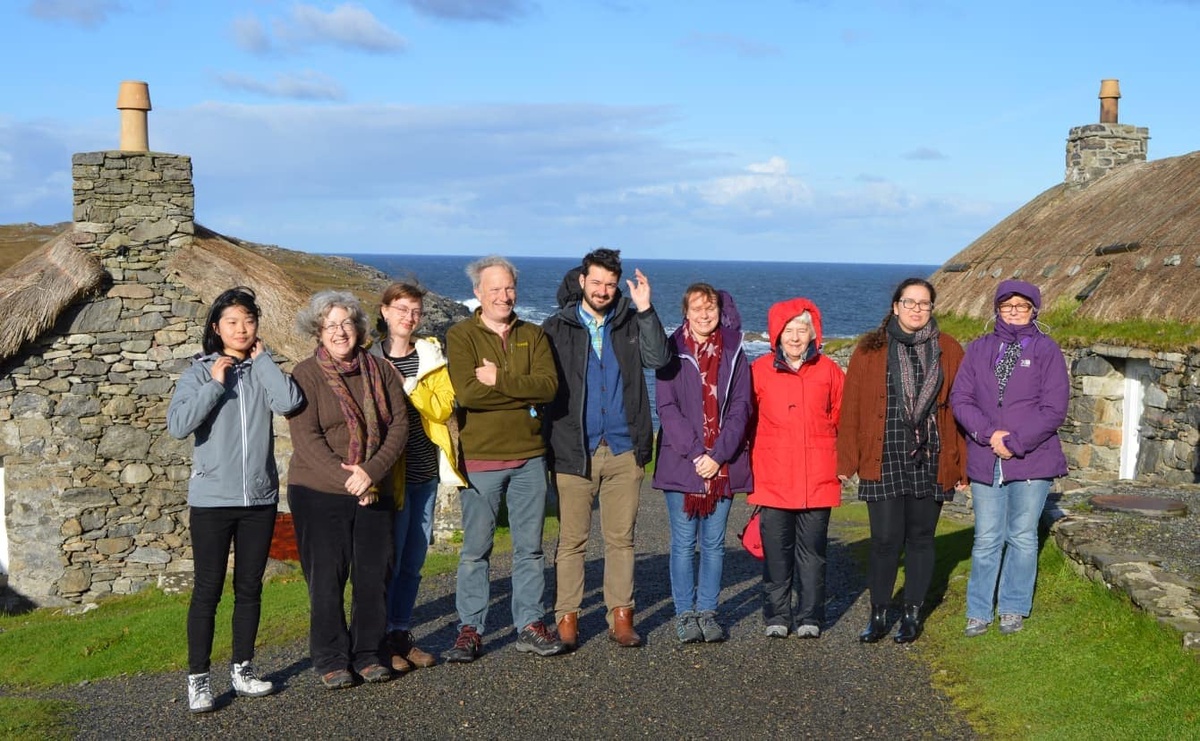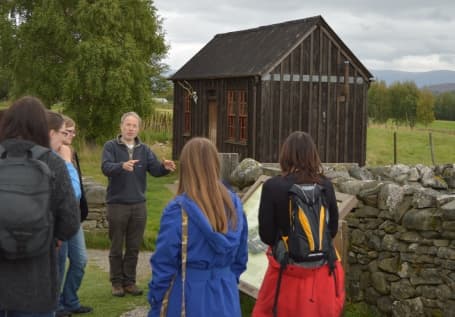What do our students study?

These creative everyday expressions – what we call folklore or the more recent term, intangible cultural heritage – are the core of what we study at the Elphinstone Institute. Students will explore this vibrant vernacular culture within the context of wider society, when and where it comes from, what it means to people today, and the different ways scholars have studied this material since the beginnings of the disciplines. Students will learn to conduct research both within archival contexts and with local communities.
What are our students like?

Some come because they are keen to learn more about Ethnology, Folklore, and Ethnomusicology, and wish to pursue a career in the disciplines, while others come because they want to research local topics that are of particular interest to them. This mix of local students and students from abroad creates an exciting balance of interests and perspectives that greatly enriches discussions, research, and fieldwork.
Studying here at the Elphinstone Institute is thus of value both to those who have particular interests in Scotland and its contexts, as well as to students whose interests lie in the disciplines themselves but who would like to apply this knowledge to contexts around the world.
What skills do our students gain from our courses?
The disciplines of Ethnology, Folklore, and Ethnomusicology are incredibly interdisciplinary and wide-ranging. In addition to gaining a thorough understanding of the disciplines, their history, and contemporary contexts in Scotland and beyond, students completing our courses will:
- conduct in-depth, ethical ethnographic fieldwork;
- produce research incorporating fieldwork and archival research both in short form (ethnographic report) and long form (dissertation);
- be able to critically engage with local, national, and international cultural policies;
- gain digital production and editing skills as part of a radio/podcast project and then an ethnographic film project;
- learn archival cataloguing skills;
- deliver academic, conference-style presentations;
- encounter academic and community research in public engagement contexts;
- have the opportunity to join in community engagement work, working with communities for communities.
What career pathways are there?
Graduates from the Institute's programmes have gone on to work in academia, public arts, government policy, museums, archives, cultural tourism, cultural administration and provision, and other fields.
What are the paths of study?
The Elphinstone Institute is the only centre specialising in the vibrant vernacular culture of the North-East and North of Scotland, and the only Folklore-degree granting institution in Scotland. We offer a one-year taught MLitt (Master's) degree in Ethnology and Folklore, as well as MLitt Res, and PhD research degrees, all of which can be undertaken full- or part-time.
Funding
See our funding page for funding opportunities for local and international applicants to our MLitt and PhD programmes.
About the North-East of Scotland
The North-East of Scotland is internationally renowned for its traditional singers and musicians, its unmatched legacy of traditional balladry (for example, the Greig-Duncan Folk Song Collection), and the global impact of its whisky and fishing industries. It is also the main European centre for offshore oil and gas activity. Further, Aberdeen's demographics are diverse, with roughly one in five residents being born outwith the UK. Aberdeen thus offers unmatched opportunities for both historical and contemporary ethnographic research. More information about the research being undertaken by staff and students at the Institute can be found on our research and staff pages.
How to Apply
Apply online and please contact us by e-mail or by phone (01224 272996) if you would like to speak with a member of staff.
